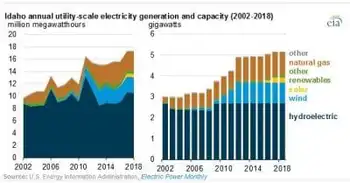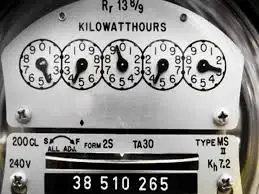Chinese companies lose on thermal power
BEIJING, CHINA - China's five state-owned power generating groups lost more than 10 billion yuan US $1.5 billion on their thermal power operations in the first four months of the year, an industry official said, as the country braces for the worst summer power crunch in years.
With profitable wind and hydropower businesses included, overall power generation losses narrowed to 6 billion yuan, Xue Jing, director of the statistics and information department under the China Electricity Council, said on the sidelines of a conference in Beijing.
The council, representing major power generating and distributing companies, is overseen by the State Electricity Regulatory Commission.
The losses came after the five groups, parents of China Power International Development Ltd, Datang International Power Generation Co Ltd, Huadian Power International Corp Ltd and Huaneng Power International Inc, racked up more than 60 billion yuan in losses from thermal power over the past three years, putting pressure on the government to consider power tariff increases to encourage generation in coming months when demand rises.
The five groups own about half of total domestic power generating capacity.
The government was reported to have increased on-grid power tariffs in parts of the country last month, but industry officials and analysts said the rise was too small to restore profitability for many coal-fired power generators.
The National Development and Reform Commission, the price-setting agency, did not confirm the increase.
China has largely lifted price controls on coal, the energy source for more than 80 percent of its power generation, but tightly regulates on-grid and retail power prices, making it hard for generators to pass on rising coal costs to power users.
Related News

Idaho gets vast majority of electricity from renewables, almost half from hydropower
BOISE - More than 80% of Idaho’s in-state utility-scale electricity generation came from renewable resources in 2018, behind only Vermont, according to recently released data from the U.S. Energy Information Administration’s Electric Power Monthly.
Idaho generated 17.4 million MWh of electricity in 2018, of which 14.2 million MWh came from renewable sources. Idaho uses a variety of renewable resources to generate electricity:
Hydroelectricity. Idaho ranked seventh in the U.S. in electricity generation from hydropower in 2018. About half of Idaho’s electricity generating capacity is at hydroelectric power plants and seven of the state’s 10 largest power plants (in terms of electricity generation)…




